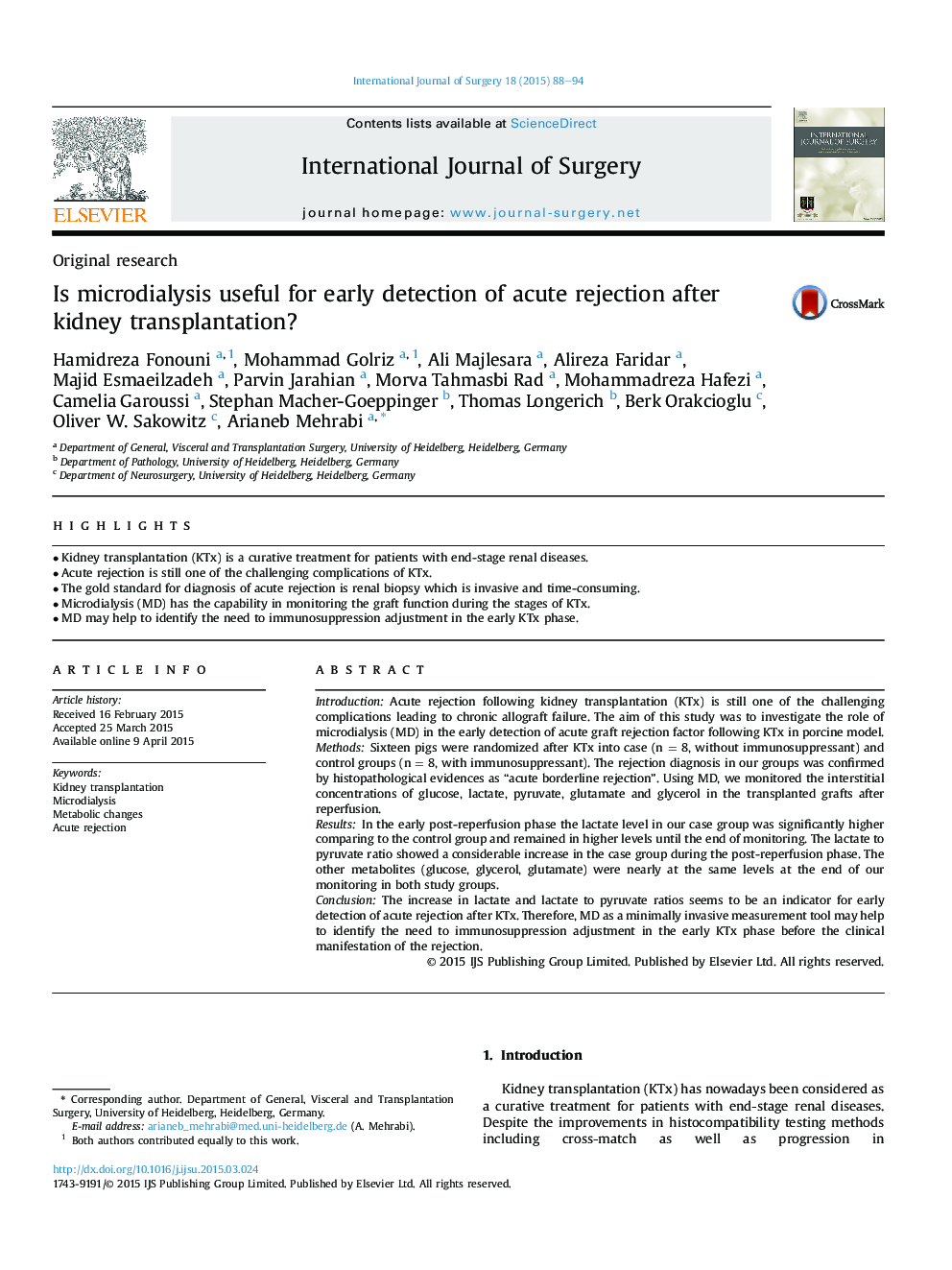| Article ID | Journal | Published Year | Pages | File Type |
|---|---|---|---|---|
| 4285830 | International Journal of Surgery | 2015 | 7 Pages |
•Kidney transplantation (KTx) is a curative treatment for patients with end-stage renal diseases.•Acute rejection is still one of the challenging complications of KTx.•The gold standard for diagnosis of acute rejection is renal biopsy which is invasive and time-consuming.•Microdialysis (MD) has the capability in monitoring the graft function during the stages of KTx.•MD may help to identify the need to immunosuppression adjustment in the early KTx phase.
IntroductionAcute rejection following kidney transplantation (KTx) is still one of the challenging complications leading to chronic allograft failure. The aim of this study was to investigate the role of microdialysis (MD) in the early detection of acute graft rejection factor following KTx in porcine model.MethodsSixteen pigs were randomized after KTx into case (n = 8, without immunosuppressant) and control groups (n = 8, with immunosuppressant). The rejection diagnosis in our groups was confirmed by histopathological evidences as “acute borderline rejection”. Using MD, we monitored the interstitial concentrations of glucose, lactate, pyruvate, glutamate and glycerol in the transplanted grafts after reperfusion.ResultsIn the early post-reperfusion phase the lactate level in our case group was significantly higher comparing to the control group and remained in higher levels until the end of monitoring. The lactate to pyruvate ratio showed a considerable increase in the case group during the post-reperfusion phase. The other metabolites (glucose, glycerol, glutamate) were nearly at the same levels at the end of our monitoring in both study groups.ConclusionThe increase in lactate and lactate to pyruvate ratios seems to be an indicator for early detection of acute rejection after KTx. Therefore, MD as a minimally invasive measurement tool may help to identify the need to immunosuppression adjustment in the early KTx phase before the clinical manifestation of the rejection.
